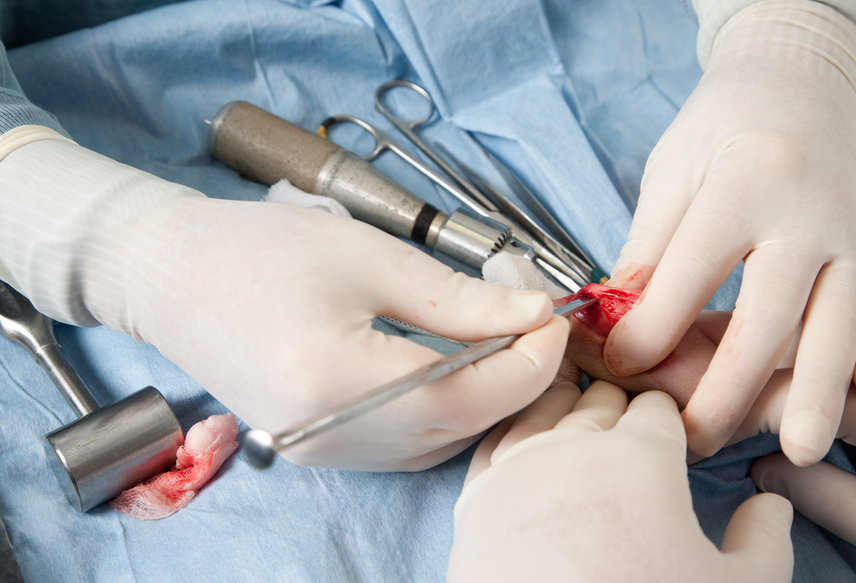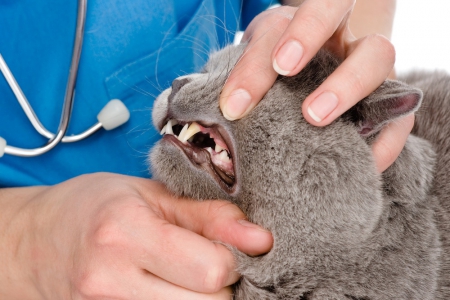Charlie is about to have an operation. Do you know what tops the pre-anaesthetic checklist?

t’s highly likely that at some stage your pet will have an anaesthetic, explains head veterinarian Dr Chris. ‘That could be for a number of reasons, anything from the routine – desexings and dentals – to the more extreme, such as exploratory abdominal surgery, orthopaedic repairs or complex lump removals. It doesn’t necessarily have to involve surgery either – during spring and summer, we’re often called to give an animal an anaesthetic or heavy sedation to allow us to search for pesky grass seeds or to perform an ear flush if a bad infection has developed.
While it’s true that anaesthetics are commonly performed in domestic animals, the specific protocol used is at the discretion of the attending veterinarian, he says. ‘It’s important for owners to ensure that their vet is using only quality products, which includes human-grade gaseous anaesthetics if the animal is required to be fully unconscious – this is also known as a general anaesthetic or GA. Comprehensive and continuous monitoring of the patient should also take place – we have a dedicated surgery nurse who works closely with the vet before, during and after the anaesthetic. And the recovery phase is just as important as the actual period that the pet is anaesthetised.’
However, preparation begins well before the day of the scheduled procedure, Dr Chris continues. ’We always perform a thorough physical examination and strongly recommend pre-anaesthetic blood testing for all patients. In certain cases, particularly where the animal is systemically ill or elderly, this test is a mandatory part of our clinic’s policy. The results give us a much better understanding of how well your pet’s organs are functioning – if there are any concerns, we may delay the procedure or use a different anaesthetic protocol to mitigate any risks.
“A pre-anaesthetic blood test allows a much better understanding of how well your pet’s organs are functioning”

t is also very possible that we may pick up other conditions before they become serious and be able to get treatment started early or discuss other options with the owner. This is something that I have seen happen a number of times during my years of practice. Knowledge is power and it’s always better to be prepared than caught off-guard. While the overwhelming majority of anaesthetics are uneventful, a pre-anaesthetic blood test could be the difference between one that goes smoothly and one that goes pear-shaped, possibly with dire consequences.’

